In a way, we’re all tourists. At some point we’ve all traveled somewhere, and hoped for the warmest welcome. So it’s hard not to look at the recent protests against mass tourism and take it a little personally. It’s confronting our way of life.
Yet, while tourism brings economic benefits and is enriching in other ways, it can also bring misery when not regulated sustainably. It seems so many people are getting worked-up because the balance is out of whack.
As a company with a presence in Barcelona, Spain, right at the epicenter of the protests, we can see the issues clearer than most. Here are 3 of the key pain points in Barcelona, Spain (and beyond) that are fuelling folk’s vitriol against visitors. For each one we’ve given a tip to do things better because frightening tourists away isn’t the solution, more responsible tourism is.
Issue 1: Housing
Housing is becoming a key liveability issue, especially for the young. Wherever you live, or want to move to, owning a home is becoming an esoteric luxury.
That’s overall. But when you add the crushing pressures of mass tourism on top of the standard squeeze that people are facing, it makes finding affordable housing almost like chasing a rainbow with a semi-decent flat at the end.
In Barcelona rent prices have skyrocketed 20% since 2022. And in other trendy Spanish cities like Malaga, they’ve risen around the same in just the past 12 months.
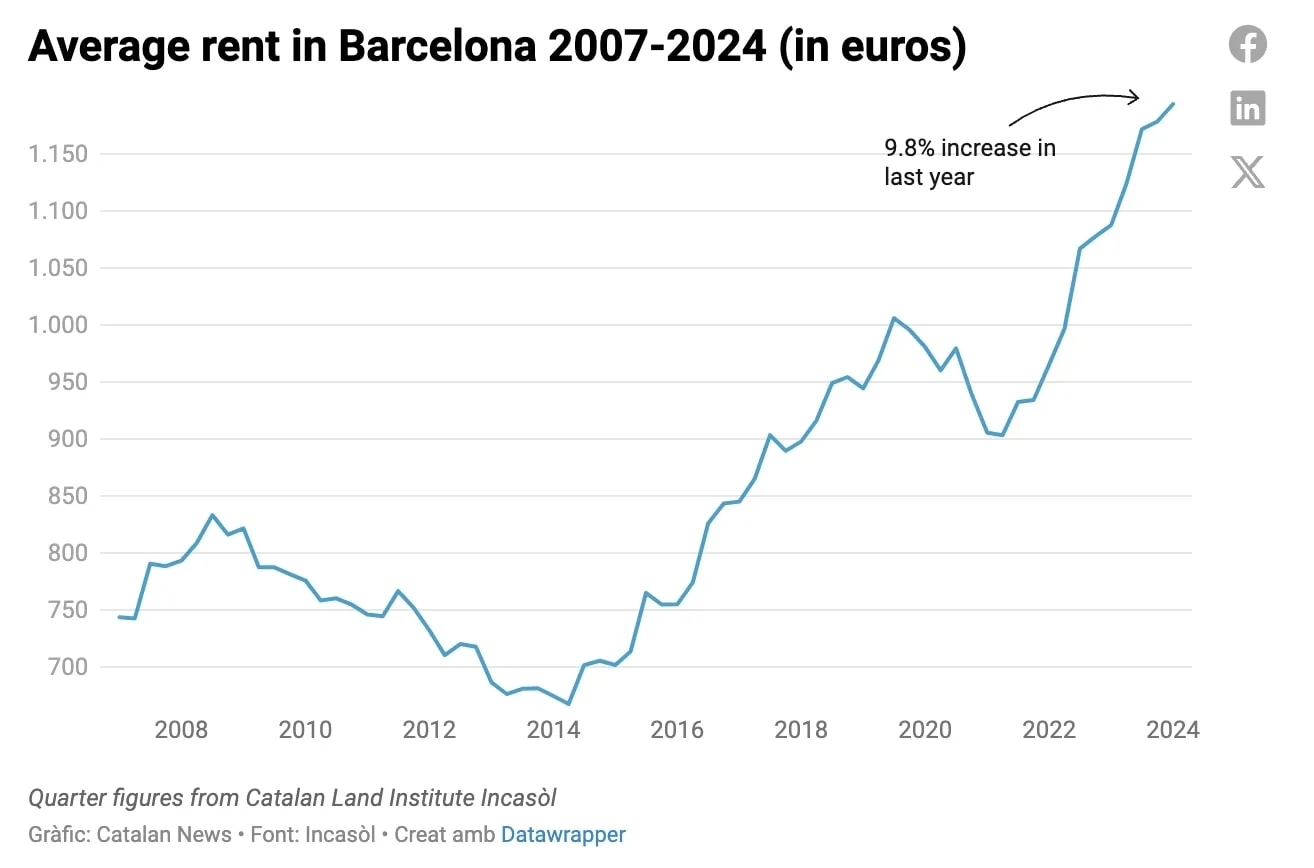
Of course, tourism isn’t the only factor pushing up prices. But a key inflationary issue is the proliferation of short-term rentals dwindling housing stock. This is why so many popular cities, like New York and also Barcelona, have banned airbnb – or are considering it, like Edinburgh.
Banishing short-term rentals isn’t quite so simple, though. Airbnb is synonymous with short-term rooms but there are plenty of other websites that list this accommodation, like Booking.com – and a contentious point is illegal listings. These are often run by organized groups (sometimes referred to as ‘mafias’) who rent out swathes of properties, know how to delay the process of eviction and aren’t bothered by fines. They work with their own lawyers to bat threats away.
The risks to rental websites themselves of including dodgy listings seem to be so innocuous that in early 2025 Airbnb was reported to have stopped responding to requests from the local government to remove them in Barcelona, leaving 800 listings untouched (earlier, Spain ordered the removal of 66,000). The inaction has led to the mayor of Barcelona, Jaume Colboni, meeting face-to-face with the company’s regional CEO to demand compliance with the rules and presumably threaten action.
Barcelona has plans to outlaw tourist flats by 2028, which has now been ratified in the country’s constitutional court, but meanwhile everyone flagrantly flouts the rules and the problems continue – backed by a bureaucratic judicial process that’s slow and unthreatening.
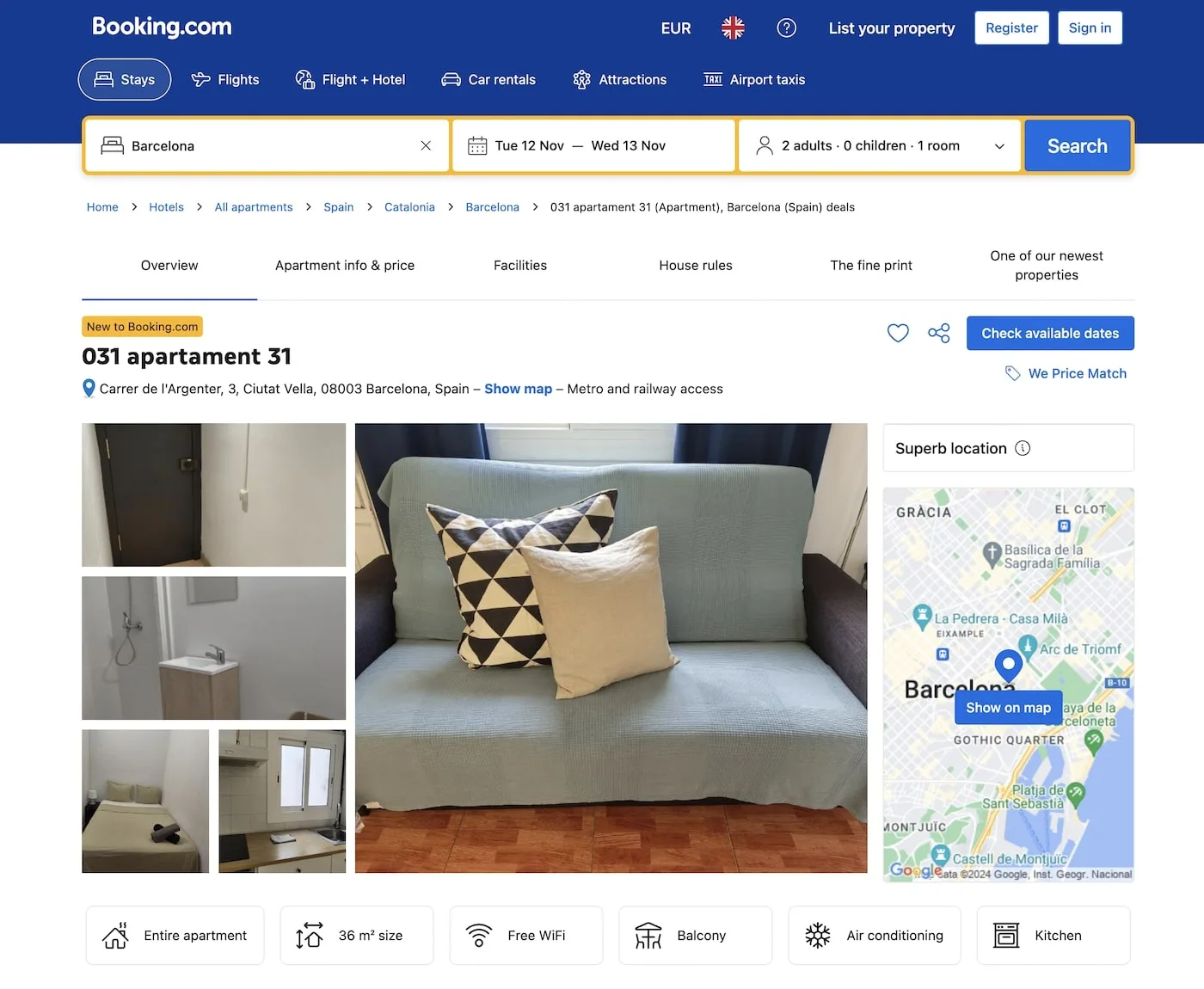
Having a roof over your head is fundamental to just getting by, never mind scaling Maslow’s Hierarchy of Needs and reaching one’s potential. So when people are struggling to even get a roof ticked off the bucket list you can understand why they’re getting a bit p*ssed.
Sustainable tourism tip: check that the property you’re going to stay in is legal in your area – if not you could be staying in a flat that should be housing. Here are a couple of links to check the tourist license or address in Barcelona.
Issue 2: Overcrowding
You may have seen widely-shared footage of Santorini during peak season, where a tsunami of tourists engulfs the streets, leaving little space to move, let alone extend a selfie stick. The influx was so bad this season that the mayor polemically urged locals to go back into lockdown.
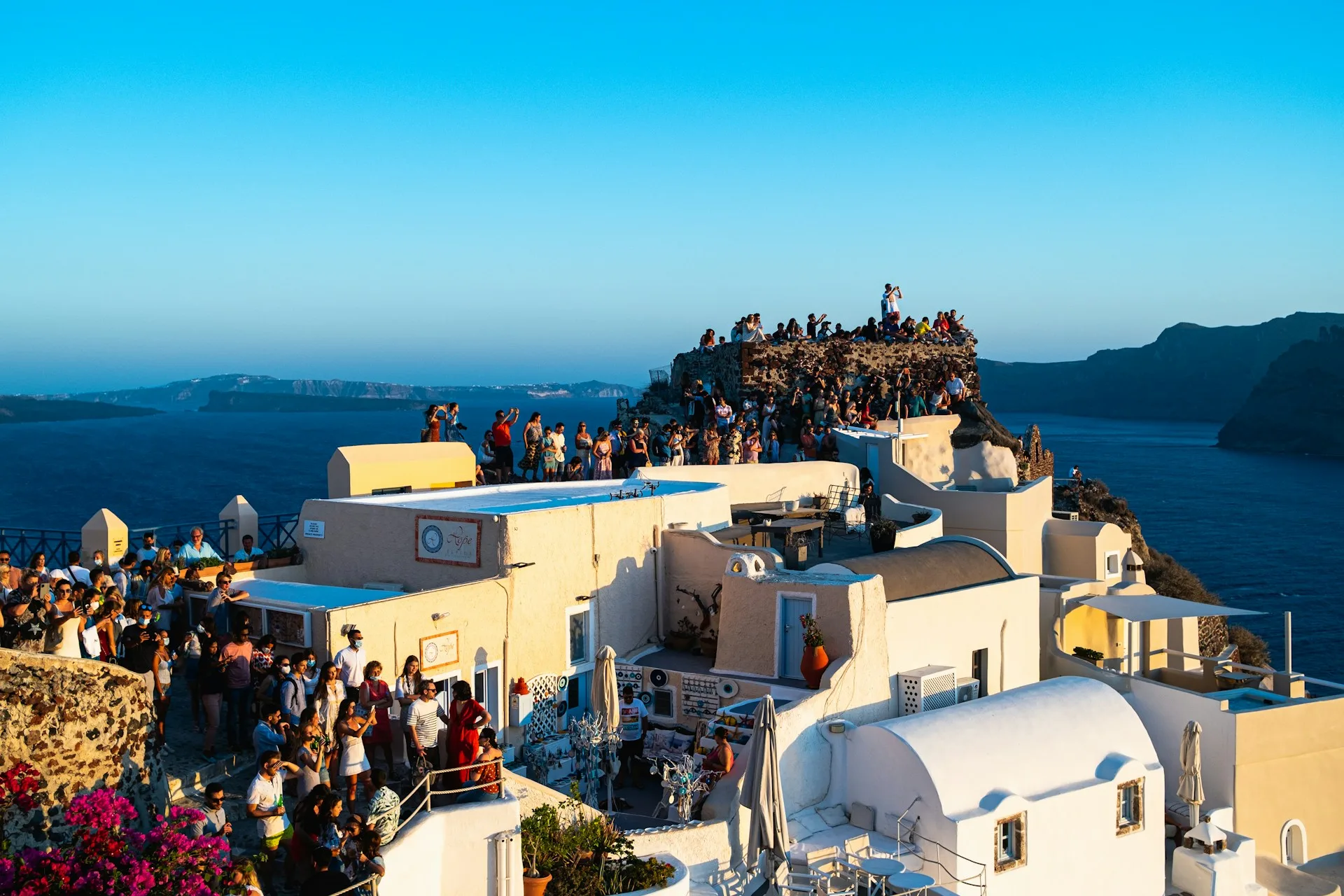
Santorini is an extreme case. It’s a small island and one of the planet’s most famous picturesque scenes. Yet, there’s a dash of that disruption in lots of tourist hotspots, including Barcelona, which is already one of the most densely populated cities in Europe.
Often, this overcrowding is related to cruise ships. Up to 20,000 tourists descend per day from these gargantuan floating cities and because they only spend a short time before returning, the value they add is limited. That’s why some of our cities are limiting numbers or increasing the ‘entrance fee’ to cruise passengers, like Barcelona plans to.
Crowding also brings bad behaviour. Some – but of course not all – tourists are in hedonistic mode and don’t have the same mindset as residents. Take these stark naked Italians who egregiously jumped around in the Barcelona streets back in 2014. And that’s when there were fewer visitors.
Another nasty side effect is that the swarms also inevitably attract crime – especially pickpocketing and muggings. Sadly, these are frequent in Barcelona and don’t just affect visitors. Someone at Akepa had their phone nicked while opening their front door earlier this year.
Infrastructure erosion isn’t quite as in-your-face. What this means is that a place becomes Disneyfied, like a theme park. Everything becomes focused around tourist crowds. A greengrocer becomes a CBD shop. A local bar becomes a generic brunch place. In the end, the streets lose their character and the locals lose their services. Ironically, it’s odd that people still come when they could be anywhere else.
These issues may be self regulating. More people are getting fed up of the crowds (as well as getting squirted by water pistols) and are seeking authentic experiences instead of homogenized ones. Visitor numbers to Barcelona rose to 26 million in 2023 from around 16 million in 2017 but since then drops have been reported.
Sustainable tourism tip: why not visit a place that isn’t as famous and thus heaving? It’ll be cheaper, safer, more authentic, friendlier, and you’ll have more of it to yourself. To revisit the Santorini example earlier, you could swap that plan for another lesser-known Cycladic island like Ikeria, Chios, or Tinos instead? It’s a no brainer, we think.
Issue 3: Environment
Tourism is estimated to cause 8% of global CO2 emissions and tourism running wild isn’t great for the local environment either. It’s an issue that isn’t quite as contentious for every resident as the everyday nuisances but it’s still causing pain.
Drought’s definitely worth a mention. The Mediterranean region is at the epicenter of protests and it also happens to be an epicenter of drought. Visitors consume way more water than residents and yet they’re subject to fewer restrictions during States of Emergency, which Barcelona entered last year. The iniquity has locals fulminating, and water’s not getting any less useful.
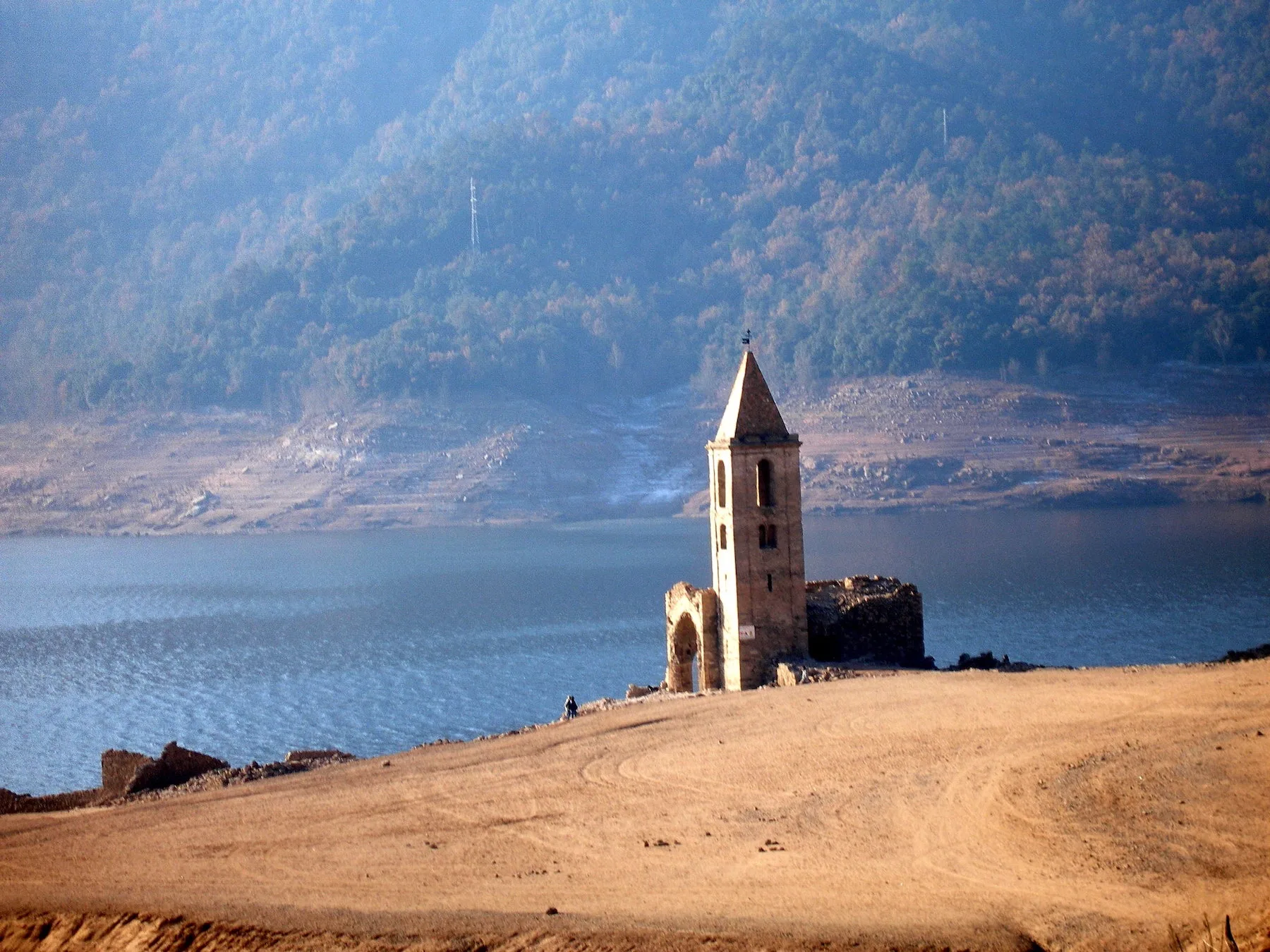
Then, there’s the problem of pollution. In Barcelona’s famous La Rambla promenade, the bins need to be emptied 14 times per day. This process is rarely efficient and wafts unsolicited aromas into the streets. Of course, hardly any of the waste is being recycled properly.
The cruise ships we mentioned earlier are also responsible for shocking emissions, which pollute the air that residents breathe. This doesn’t just mean CO2 but also more toxic gases like nitrogen oxide and sulphur. By many measures, Barcelona is the worst polluted port in Europe.
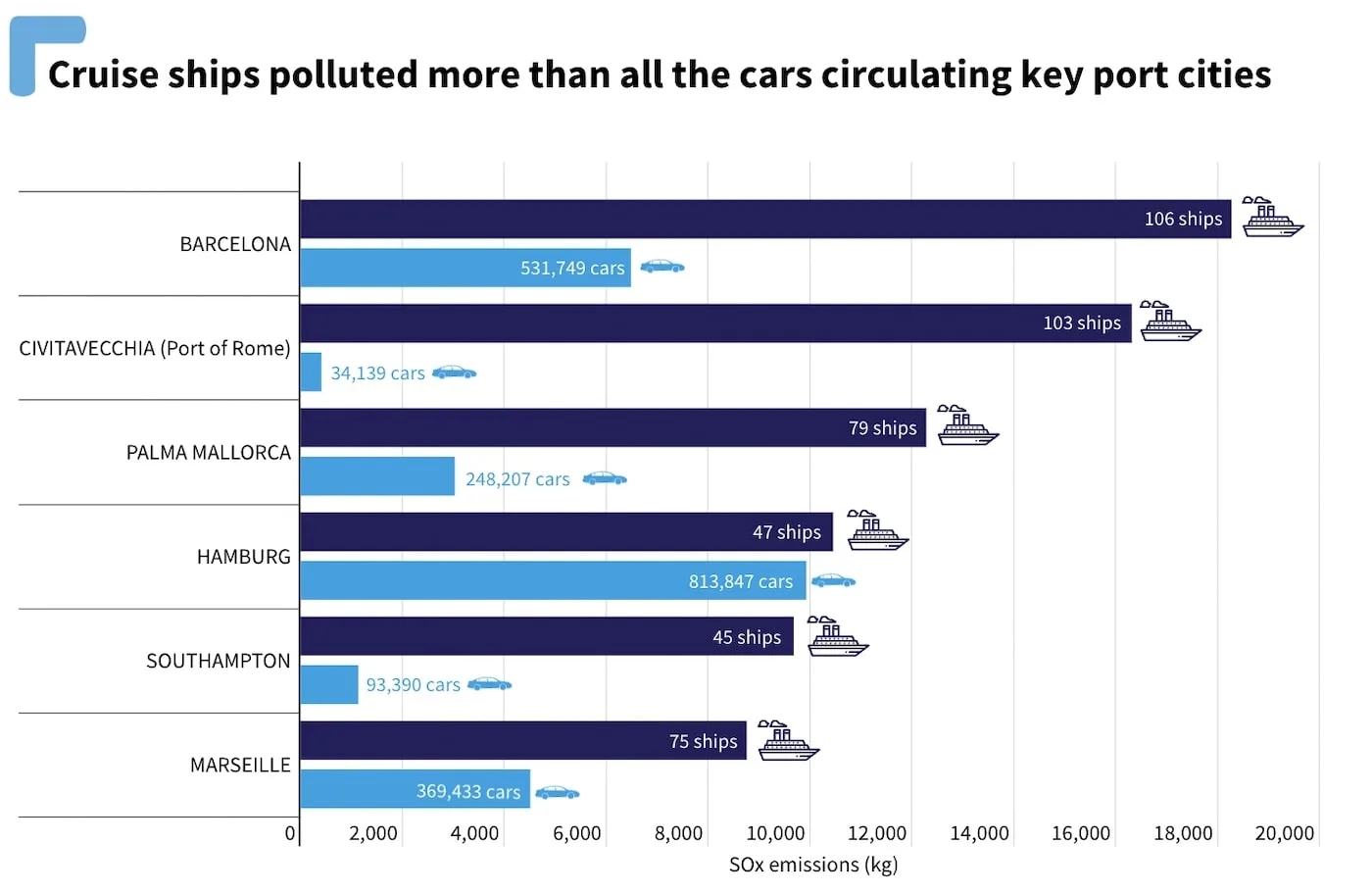
And again in Barcelona, a controversial airport expansion is set to go ahead beside a protected bird reserve in the Llobregat Delta. The plan to offset the massive $3.7 billion extension with 250 hectares of ‘rewilding’ seem a little disproportionate.
This all sounds horrible but these are just a few key environmental issues. We could go on and on.
Sustainable tourism tip: wherever you are, consider activities and experiences that are more ‘eco-friendly’ – like riding a bike or recycling. Recently, Copenhagen trialled gifting cool stuff to tourists who did so. If the results show the experiment was a success, it’ll be rolled out more widely in 2025. Hopefully more cities will take the lead.
Tourism isn’t bad, it’s just about balance
So there we go. We hope that helps to explain some of the issues – and if it comes across like we think tourism is bad then that’s not the case. We’re tourists at Akepa too. We love to travel. It’s just a case of finding a bit more balance in certain places – or, as we like to say, sustainability.
We hope we’ve given a helpful view of some of the issues – and some tips to travel a bit more responsibly, too.
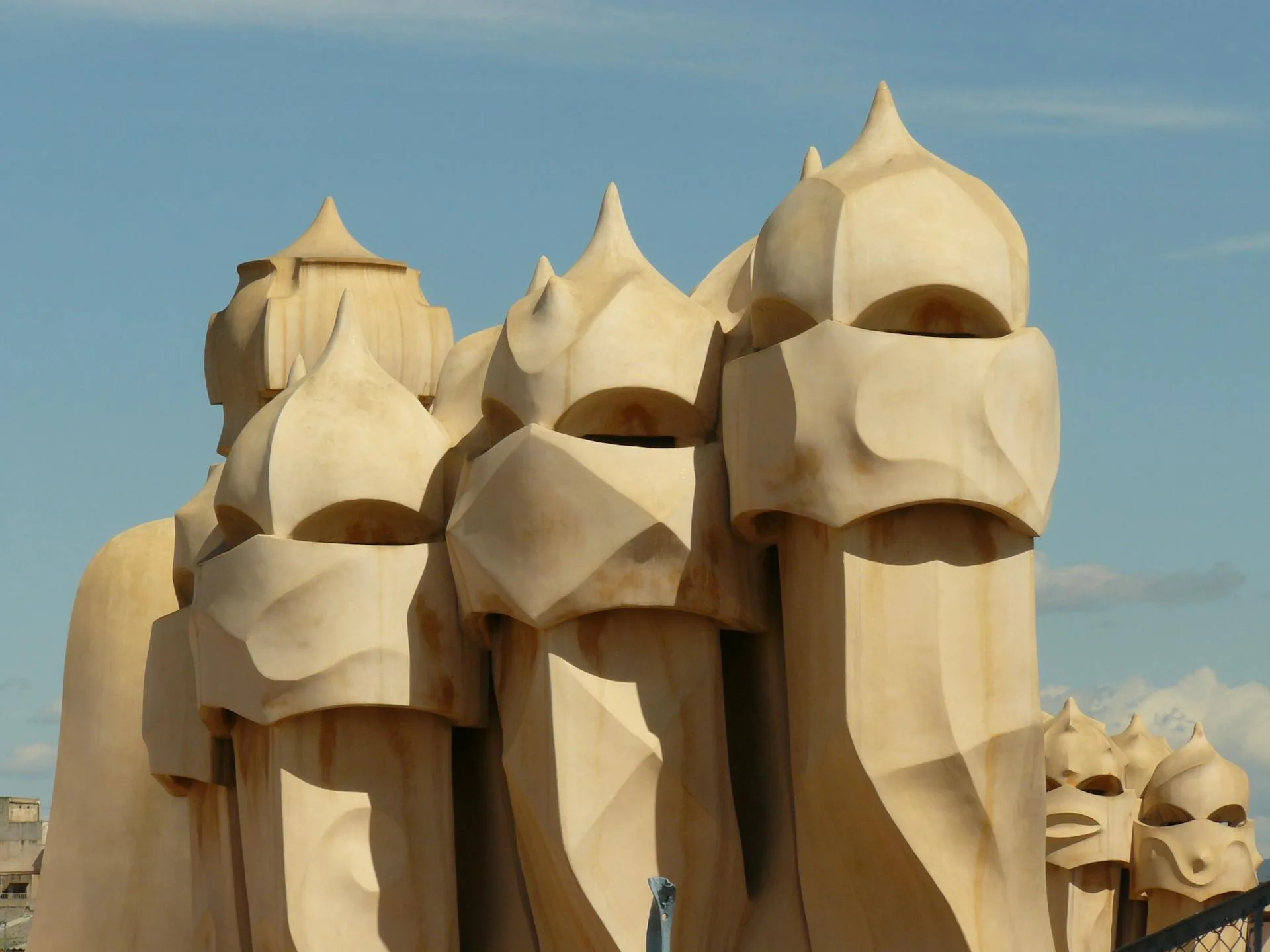


Leave a Reply